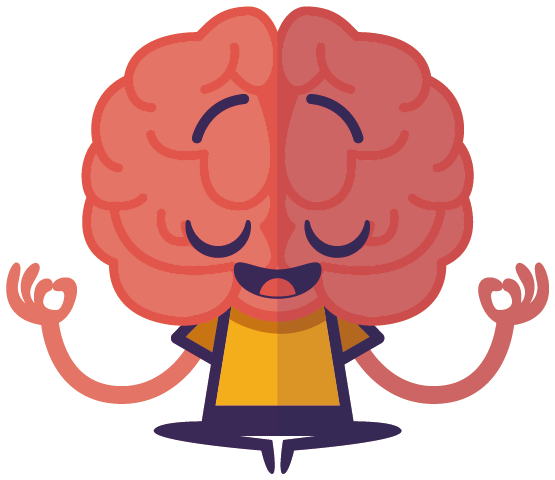A smaller world. What does it mean? To use at work. To travel more easily. To gain a marketable skill. These are all great reasons to learn a language. But at the end of the day, they all boil down to one unifying reason: to communicate with people. True communication facilitates something even better- understanding one another.
Language is a powerful tool for learning about each other as well as learning how to communicate with each other. Learning a language can help you learn about the culture and history of a group of people, expanding your worldview. This can lead to a deeper understanding of things that were previously foreign to you.
A Foreign Language, A More Tolerant World
In a world that is increasingly connected, it’s never been more important to understand where people from other cultures are coming from. Language can change the way people understand everything, from something as simple as directions to something as complicated as love. Lera Boroditsky, an associate professor of cognitive science at the University of California, San Diego, did a simple experiment that demonstrates this perfectly. She asked people in a room to point towards the southeast. The only people who got it right? Australian aboriginal language speakers.
Instead of using words like left and right, in which the direction is oriented around the speaker, their language talks about directions in terms of compass points. Unlike the other participants, they were always acutely aware of the compass directions in the room, because it was an integral part of the way they communicated.
Understanding these important parts of culture that can stem from language is incredibly important for anyone who wants to become a more global citizen. Learning new languages can help us to bridge gaps and create a more connected and understanding world.
A Language is a Worldview
If you’re a native English speaker, take a moment to read these two sentences aloud:
There are seven big blue lamps in the corner.
There are seven blue big lamps in the corner.
One clearly sounds better than the other, but why? It’s because English has a natural ordering of adjectives that native speakers never even think about. The first time many people encounter this rule is when they are learning another language and struggling with naturally ordering things the wrong way. All languages have quirks like this, and some of them are far more significant than the order adjectives go in.
A great example is way German speakers use verbs. In English, we can say “The woman is walking.” and that is a perfectly fine sentence. However, in German, you must express intention of action along with the verb. For example, “A woman walks” is not a correct sentence but, “A woman walks towards her car,” is. This simple language quirk results in a more result-focused culture. When Germans consider actions, they don’t only consider what is happening, but what will happen because of that action.
Studies have also shown that people who learn a second language, regardless of what language they learn, are more creative and empathetic. The creativity comes from the fact that the brain has one center for languages, and people who learn more than one get better at sorting out complicated thoughts in ways that are more ingenious.
What Happens in the Brain When You Learn a Foreign Language?
Worldview isn’t just all encompassing term for all the everyday differences language can make in our minds, there are physical and quantifiable changes that your brain undergoes when learning a new language.
Scientists who wanted to quantify this took MRIs of a group of Japanese and English speakers. Japanese speakers identify the sounds “r” and “l” as one, making it difficult for native speakers of Japanese to distinguish between words like “river” and “liver” when learning English. When scanned at first, Japanese speaker’s brains only highlighted one area when hearing “r” and “l” sounds, while English speakers brains highlighted two. After a few sessions on these sounds, the Japanese speakers brains showed two highlighted sections as well. This is a great example of how language learning can expand our brains and capabilities.
 So Exactly How Does Language Learning Make a Smaller World?
So Exactly How Does Language Learning Make a Smaller World?
As the world becomes increasingly multilingual, there is a growing understanding that the culture and language we originate from is just one among others. Understanding this fact helps you to empathize with people from other cultures, think more creatively about problems, and examine the way your own culture fits into the mix. Moving towards this kind of thinking will help us to not only communicate with each other more effectively, but will help us to be kinder to each other as well.
It Changes the Way You Look at Your Own Language
Learning a new language forces you to examine the way your language shapes your own worldview. Studies have shown that people who use two languages frequently will talk about things differently according to which language they are speaking. When Spanish/English speakers were asked to talk about themselves, in English they would focus on things like achievements, work, and school, while in Spanish they would focus on family and community.
Speaking more than one language brings these kinds of differences to the forefront and helps us to understand that our native language is just one piece of the puzzle. When there are so many ways to say something as simple as “The apple is on the table”, why wouldn’t there be many different ways to approach a situation that is more complex?
It Changes the Way You Look at the World
Learning a new language can help you to look at the world in a more considerate way. For example, when students in a study at the University of Chicago were presented with three different sized cars, the smallest was obscured from the researchers view. When asked to provide the researcher with “the smallest car”, children who had been exposed to another language were more likely to provide the researcher with the medium sized car, which was the smallest one the researcher could see.
This simple experiment is a great example of how learning a new language forces us to think about the world from another’s perspective. Learning this way makes it easier to automatically consider other people in our actions, making us better citizens of the world.
Language can also give us a higher “tolerance of ambiguity”. This means language learners are more likely to be comfortable with unknown variables in a situation. It’s easy to see how this is an advantage in everyday life. It makes us more patient, kinder towards strangers, and less stressed when dealing with complicated situations.
While the Internet continually contributes to our ability to communicate with people across the world, we can work within our communities to increase language ability and understanding of cultural differences. As global citizens, we are responsible for learning about other cultures, values, and ways of thinking so that we as a whole can become better. An education turned toward others, exchanges, and the learning of languages and cultures could diminish some current worldwide issues like racism, xenophobia, conflicts between communities, and even some wars.
Want more articles on languages from Southeast Asia? Check these out:
Best Mobile Apps to Learn Vietnamese for Beginners



